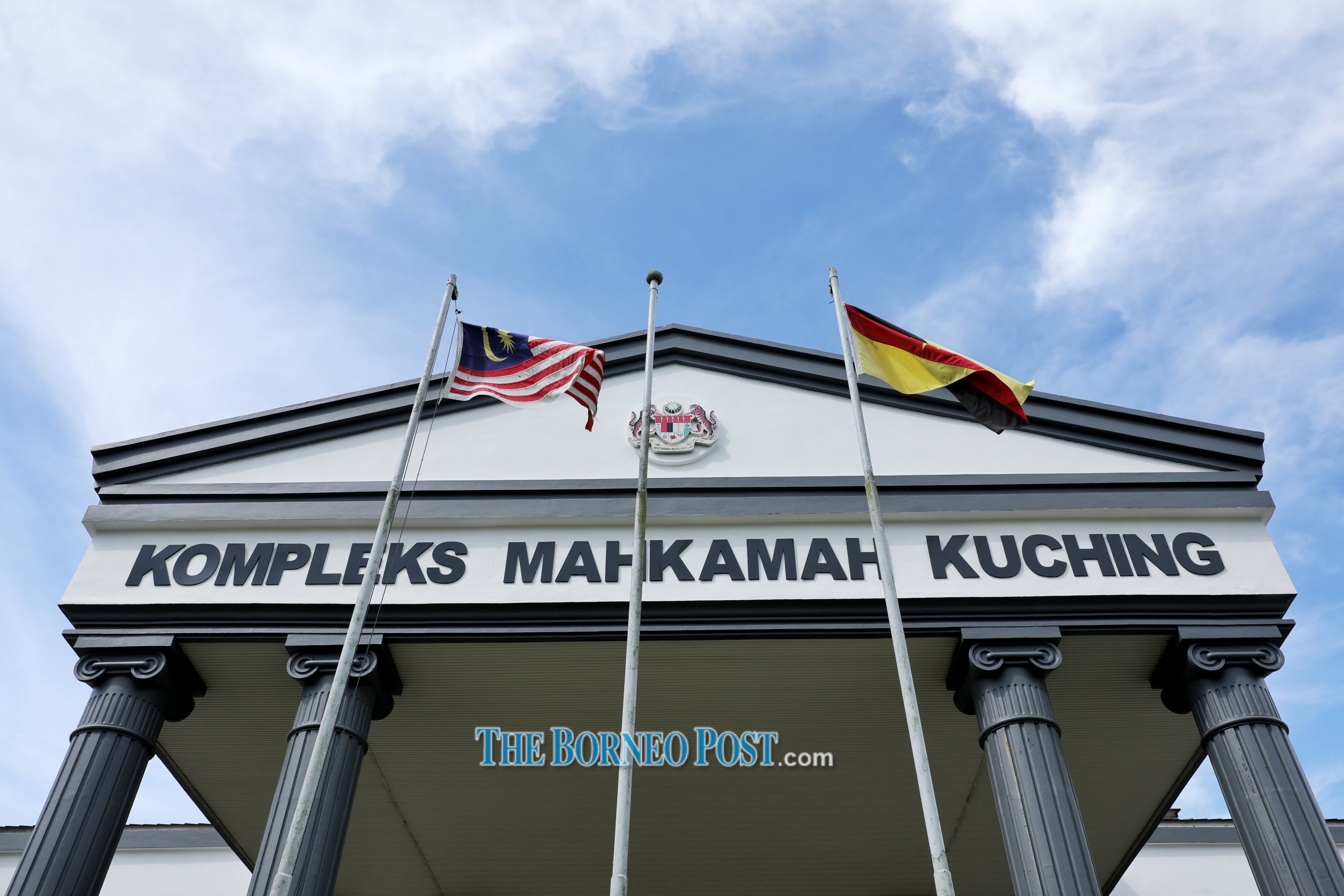ADVERTISE HERE
Deep within the jungle, miles away from the nearest civilization, which happened to be my remote rural village in Serian District, a mysterious family resided. Their presence was elusive, despite owning an old house in our village. Occasionally, I glimpsed the father tending to the overgrown grass and creeping plants surrounding the house. Yet, beyond those rare sightings, the family embraced a hermit lifestyle, seemingly averse to the bustling village life and human contact.
As a curious child of the 1950s and 1960s, their existence intrigued me. I had always assumed that people naturally lived together with their families and friends in lively villages or towns. The hermits shattered that notion, leaving me puzzled.
My mother explained that the man was one of her distant cousins, so distant that she could not recall how many times removed he was from the maternal side of her family. The complexities of our family tree seemed like a jumbled mess, so I swiftly dismissed it from my thoughts.
It was not until I reached elementary school in the early 1960s, at an age when I could freely explore the surrounding jungles with my adventurous friends or understanding adults that I stumbled upon the house of the hermits.
Accompanied by my first cousins Ratum and Surad — both from my mother’s side — we ventured into the forest in search of green wild pigeons. It was the season when these elusive birds flocked to the area due to a bountiful season of their favourite berries. Just as the birds fed voraciously on their beloved berries, we loved them for their tender tasty meat which to us tasted like a dish fit for a king when cooked with a bit of ‘sambal’, lemon grass, fermented durian paste, and ginger, and various other ingredients.
We did not know that the house of the hermits lay in the heart of the jungle where we roamed. It was nestled atop a mound near the tip of a river promontory — a land formation resembling a peninsula, jutting out into the river and encircled by water on three sides. It sat within an extensive grove of fruit trees, surrounded by citruses, rambutans, langsat (scientific name: Lansium domesticum, also known as ‘lanzones’, or ‘lansones’), mangosteens, jackfruits, durians, breadfruits, etc. This lush haven was in turn enclosed within a rubber garden.
Close to the house were rows of various kinds of cultivated vegetables, while above ground, up and around several bamboo trellises, were cucumbers, water gourds, beans, squash, melons, and pumpkins.
Years passed without seeing Uncle Duke, and his wife rarely returned to the village. Their only child, a girl much older than me, remained a stranger. When Uncle Duke emerged from his dwelling that day, shouting at his barking dog to cease its noise, I recognised him immediately. Uncertainty gripped me, though, for I assumed he harboured a general distaste for people. However, to my surprise, his voice was low and gentle.
“Who are you boys, and where are you from?” he inquired, catching me off guard. Hesitant to reveal our names as mere strangers, I introduced myself as my mother’s son. His eyes lit up with recognition.
“Ah! So, you’re (mom’s name) son!” he exclaimed, gesturing towards my cousins and asking about their parents. As I shared their parents’ names, a wide smile adorned his face.
“Well, well! Today is an extraordinary day indeed. It’s not often that I have the pleasure of meeting three nephews all at once,” he beamed. “Come, let’s go inside and enjoy some refreshments. If you’re hungry, I’ll ask your aunt to prepare a meal. Come along, my adventurous nephews!”
According to my mother’s favourite cousin, Uncle Sulas, whose words were corroborated by her, Uncle Duke’s story began with a broken heart that led him on a unique journey. A pretty young woman broke his heart when he was a young man, prompting him to leave the village for solace and healing. Nobody knew exactly where he went during that time, but the grapevine had it that he stayed with a relative in another village while another story had him working as a labourer in an unnamed town. After returning, he chose the life of a hermit, distancing himself from village life. In Uncle Sulas’ version of the story, Uncle Duke did not want to take the chance of setting eyes on the woman who broke his heart or, God forbid, bumped into her somewhere in the village.
Despite his solitude, Uncle Duke’s heart found love again. He visited the village sporadically with a newfound affection for another woman who, ironically, was a distant cousin of his first love. Much to my mother’s amusement, Uncle Sulas swore that the second woman was much better looking than the heart-breaker. Uncle Duke eventually married her and she joined him in his remote house and they had a daughter soon after that.
As the wife graciously served us freshly squeezed lime juice and skillfully prepared sweet potatoes in their quaint living room, Uncle Duke expressed his gratitude and affectionately referred to her as Lau. At that moment, I adopted the term Aunt Lau to address her, only to discover much later, to my chagrin, that it was not her actual name. As it turned out, Lau was Uncle Duke’s endearing nickname for her, a shortened form of Sallau. In the Bukar-Sadung sub-dialect spoken by the Bidayuh of Serian District, Sallau is equivalent to ‘Sayang’ in Malay, conveying sentiments of darling, sweetheart, beloved, or loved one.
Despite my embarrassment, I continued to think of her as Aunt Lau because I did not know her real name, and even if I knew, I would not have uttered it due to our cultural taboo which prohibited children from saying the names of their parents and equivalent elders.
During our engaging conversation that marked our initial encounter, she humorously remarked that Uncle Duke’s joy at our visit stemmed from his preference for children over adults. She elaborated, explaining that, for reasons he couldn’t articulate, he found most adults tiresome, though he could engage positively with others when necessary. He was not a complete recluse, consistently attending family gatherings during times of bereavement or serious illness.
While Uncle Duke and Aunt Lau initially envisioned having more than one child, unforeseen circumstances arose after the birth of their first child, leading to medical complications.
Fate, however, took an unexpected turn one day. Uncle Duke’s elder brother’s wife tragically passed away, leaving him with four young children. Overwhelmed by grief and depression, the bereaved man found himself incapable of caring for both himself and his children.
With no other options, Uncle Duke and his wife became foster parents to the children. Their home, once quiet, turned into a lively and loving space for the expanded family. Despite the unexpected extra responsibility, the couple embraced the children wholeheartedly.
As the kids approached school age, they divided their time between their biological father and Uncle Duke. The elder brother took care of them during the week, allowing them to attend the village’s primary school. However, every weekend, the children returned to the warm embrace of their uncle, aunt, and cousin.
Uncle Duke went above and beyond, building a cabin nearby for his elder brother to spend weekends with his family and the children. The once-solitary hermit had not only found love but had also created a heartwarming home for an unexpected family, turning his life into a tale of love, resilience, and the joy of unexpected blessings.
Years passed, and the children became adults. The girl got married to a civil servant, and the boys became government officers. The youngest son furthered his education in England and returned to find his place in public service. Life, however, rarely gives a perfect deal; their father passed away not long after the youngest son returned home and found a job. A few years later, Uncle Duke followed suit.
Together with their aunt, they mourned for him. In gratitude for what he had done for them, they reciprocated by showering their aunt and their only cousin with love and affection for the rest of their lives.
The life of Uncle Duke and his family, hidden away in the jungle, was a manifestation of the life-changing power of love and the joy that comes from unexpected turns in life.
Maya Angelou
‘Family isn’t always blood; it’s the people in your life who want you in theirs: the ones who accept you for who you are, the ones who would do anything to see you smile and who love you no matter what.’
– Maya Angelou (April 4, 1928 – May 28, 2014), an American poet, memoirist, and civil rights activist best known for her autobiographical series of seven books that explored themes of identity, racism, and the resilience of the human spirit.The views expressed here are those of the writer and do not necessarily represent the views of the New Sarawak Tribune.









 English (US) ·
English (US) ·